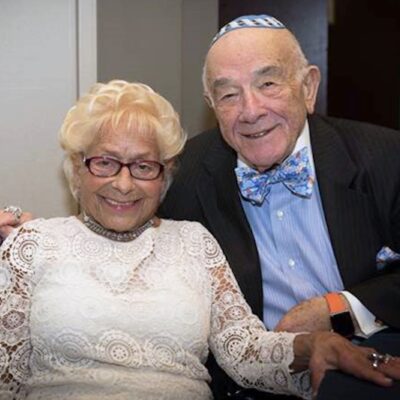Hebrew Ba’Bayit

By Sharon Avni
[First in a series about the new book Hebrew Infusion: Language and Community at American Jewish Summer Camps, the product of the Mandel Center’s Hebrew at Camp project.]
For all of the six years that Sarah Benor, Jonathan Krasner, and I spent researching and writing about the use of written and spoken varieties of Hebrew at American Jewish overnight camps, we never imagined that as our book Hebrew Infusion: Language and Community at American Jewish Summer Camps was coming off the printing press we would be facing a situation in which most of these camps were making the painful decision to close for the summer of 2020 because of the COVID-19 pandemic. Though we had some inkling around Passover that camp leadership was grappling with the implications of the virus’s severity, there was still a glimmer of hope that if anyone could figure out a creative way to keep camps open and safe, it would be Jewish overnight camp directors, who seem to have superpowers that enable them to do what often seems like the impossible: keep hundreds of campers and staff members engaged, entertained, well fed, and happy, while dealing with the logistics of staffing, grounds keeping, and security issues. But the joy of finally receiving copies of the book was tempered by the reality that camping was not going to happen this summer. As a camp alumna and a parent of two children who have attended Young Judaea camps for years, I, along with my family, was devastated by the news we received in May. The annual ritual of pulling out the enormous duffle bags from the basement closet, beginning to label clothing and packing up their belongings was quickly replaced with feelings of sadness and disbelief.
One of the central findings of our book is that Jewish overnight camps have a “secret sauce” – and that Hebrew is one of the key ingredients in creating each camp’s distinctive Jewish flavor. Whether a camp was deeply infused with a lot of visual displays of Hebrew signage and Hebrew words being used in daily chants, songs, prayers, or conversations, or whether it was a camp that has more limited uses of Hebrew, the presence and use of Hebrew was one of the constant and pervasive elements that separated camp from the outside world and from other times in the Jewish calendar. Indeed, we heard over and over again from campers and staff members how Hebrew at camp was so different from the ways in which they interacted with the language in their homes, synagogues, JCCs, and day schools.
Watching David Weinstein, the director of Tel Yehudah, speak to parents in a Zoom call about the agonizing decision to cancel, I saw that Hebrew was being called on once again to do important work for camps, even if the camp grounds were physically closed. David spoke about participating in peulot (activities), competing in Maccabiah (color war), reciting the birkat hamazon (grace after meals), and the amazing madrichim (counselors) at camp. Listening to him, I realized that while camps had often included this Hebrew lingo in their online and printed marketing material, these words were now being infused with new responsibilities: not to differentiate between the camp and home settings, but to transfer the camp experience into the home by signaling comfort, familiarity, and consistency – what every grieving camper (and parent) needed. This new role was underscored a few weeks later when I received an email and recognized Camp Young Judaea Sprout Lake’s apt decision to name its virtual programming Sprout Ba’bayit (Sprout at Home), which includes daily itineraries that include mifkad (flag raising), rikud (dance), and parsha players.
This makes Hebrew Infusion even more timely than we could have anticipated because it explores why and how Hebrew functions in the camp setting by creating a new register of camp language (which we call Camp Hebraized English) and a novel form of American Jewishness. By tracing the origin of the Hebrew phenomenon in American Jewish camping and describing its current manifestations, our book offers Jewish educators, parents, and others interested in Jewish camping the opportunity to think about the efficacy and potency of Hebrew beyond camps’ geographic borders in creating the conditions that make camp such a special place for so many.
Sharon Avni is a professor at Borough of Manhattan Community College (CUNY).














